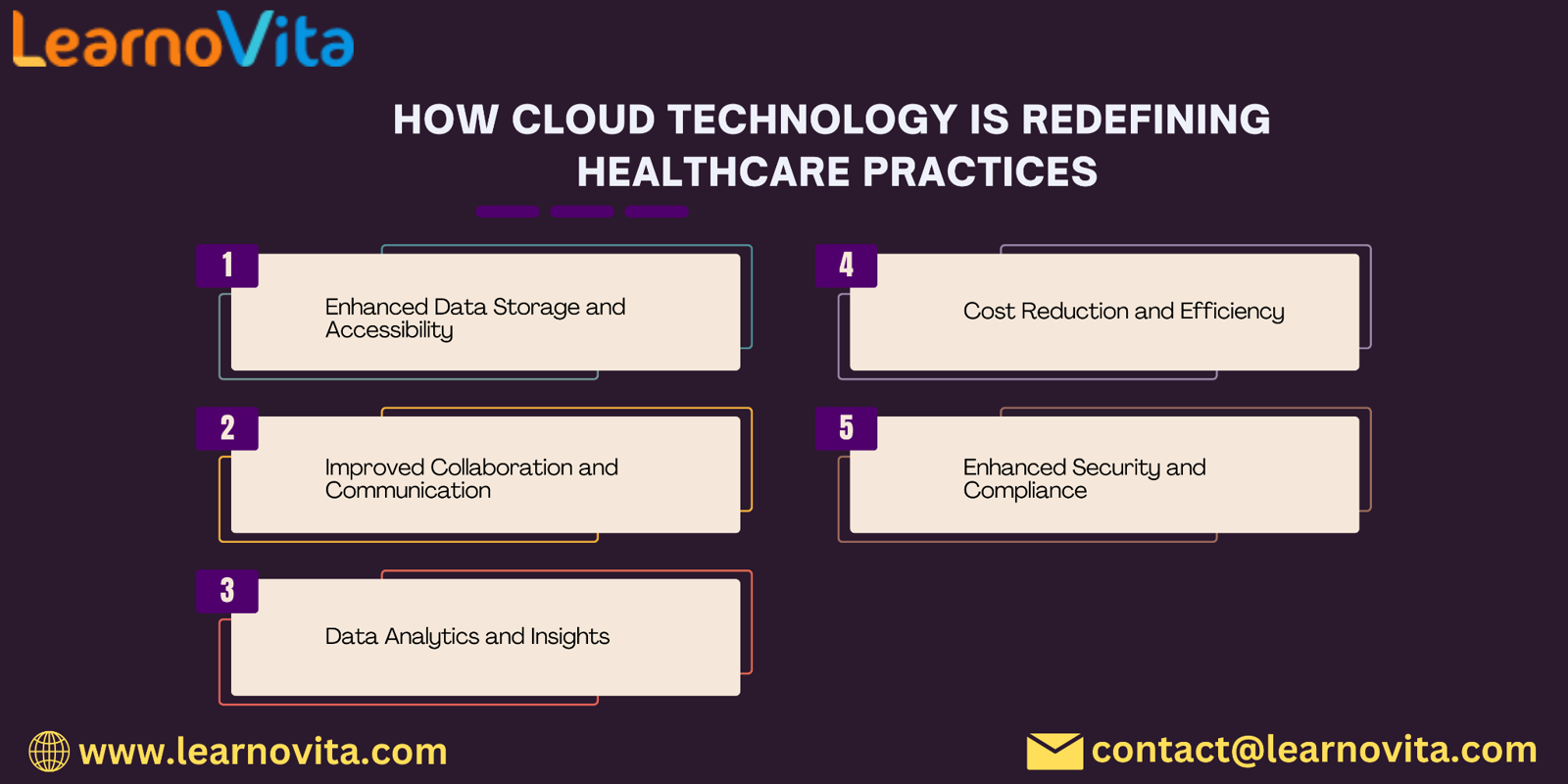In recent years, cloud computing has emerged as a game-changer for the healthcare industry, revolutionizing how patient data is stored, shared, and analyzed. As healthcare providers strive to improve patient outcomes and streamline operations, the adoption of cloud technologies is proving to be essential. Here are some of the keyways cloud computing is transforming healthcare.
If you want to excel in this career path, then it is recommended that you upgrade your skills and knowledge regularly with the latest Cloud Computing Course in Bangalore.

1. Enhanced Data Storage and Accessibility
Overview
Healthcare organizations generate vast amounts of data daily, from patient records to imaging and lab results. Cloud computing offers scalable storage solutions, allowing providers to store this data securely and access it from anywhere.
Benefits
Remote Access: Healthcare professionals can access patient information in real-time, regardless of their location.
Reduced Costs: Cloud storage reduces the need for expensive on-premises servers and maintenance.
Disaster Recovery: Cloud solutions often include automated backup and recovery options, ensuring data integrity.
2. Improved Collaboration and Communication
Overview
Effective communication among healthcare providers, specialists, and patients is critical for quality care. Cloud computing facilitates seamless collaboration through shared platforms.
Benefits
Interoperability: Cloud systems allow different healthcare applications to work together, enabling data exchange between providers.
Telemedicine: Cloud-based platforms support telehealth services, allowing providers to consult with patients remotely.
Enhanced Coordination: Teams can collaborate on patient care plans in real-time, improving overall efficiency.
3. Data Analytics and Insights
Overview
Cloud computing enables healthcare organizations to leverage big data analytics, gaining valuable insights that can lead to better decision-making.
Benefits
Predictive Analytics: Providers can analyze trends and predict patient outcomes, leading to proactive interventions.
Population Health Management: Cloud analytics can help identify health trends within specific populations, informing public health strategies.
Personalized Medicine: By analyzing patient data, healthcare organizations can tailor treatments to individual needs.
With the aid of Cloud Computing Online Course programs, which offer comprehensive training and job placement support to anyone looking to develop their talents, it’s easier to learn this tool and advance your career.

4. Cost Efficiency
Overview
Cloud computing can significantly reduce operational costs for healthcare organizations, making it easier for them to allocate resources effectively.
Benefits
Lower IT Costs: By moving to the cloud, healthcare providers can reduce expenses related to hardware, software, and maintenance.
Pay-as-You-Go Models: Many cloud services operate on a subscription basis, allowing organizations to pay only for what they use.
Resource Allocation: Savings on IT can be redirected toward patient care and other critical services.
5. Enhanced Security and Compliance
Overview
With the increasing amount of sensitive patient data being stored in the cloud, security and compliance have become paramount concerns.
Benefits
Robust Security Measures: Cloud providers often implement advanced security protocols, including encryption and multi-factor authentication.
Regulatory Compliance: Leading cloud providers comply with healthcare regulations like HIPAA, ensuring patient data is handled appropriately.
Continuous Monitoring: Cloud services typically offer 24/7 monitoring to detect and respond to potential security threats.
Conclusion
Cloud computing is reshaping the healthcare landscape by enhancing data accessibility, improving collaboration, and enabling data-driven insights. As healthcare organizations continue to embrace cloud technologies, they can streamline operations, reduce costs, and ultimately deliver better patient care.
The future of healthcare is undoubtedly intertwined with cloud computing. By adopting these technologies, healthcare providers can not only improve their efficiency but also create a more patient-centered approach, paving the way for a healthier society.


Write a comment ...